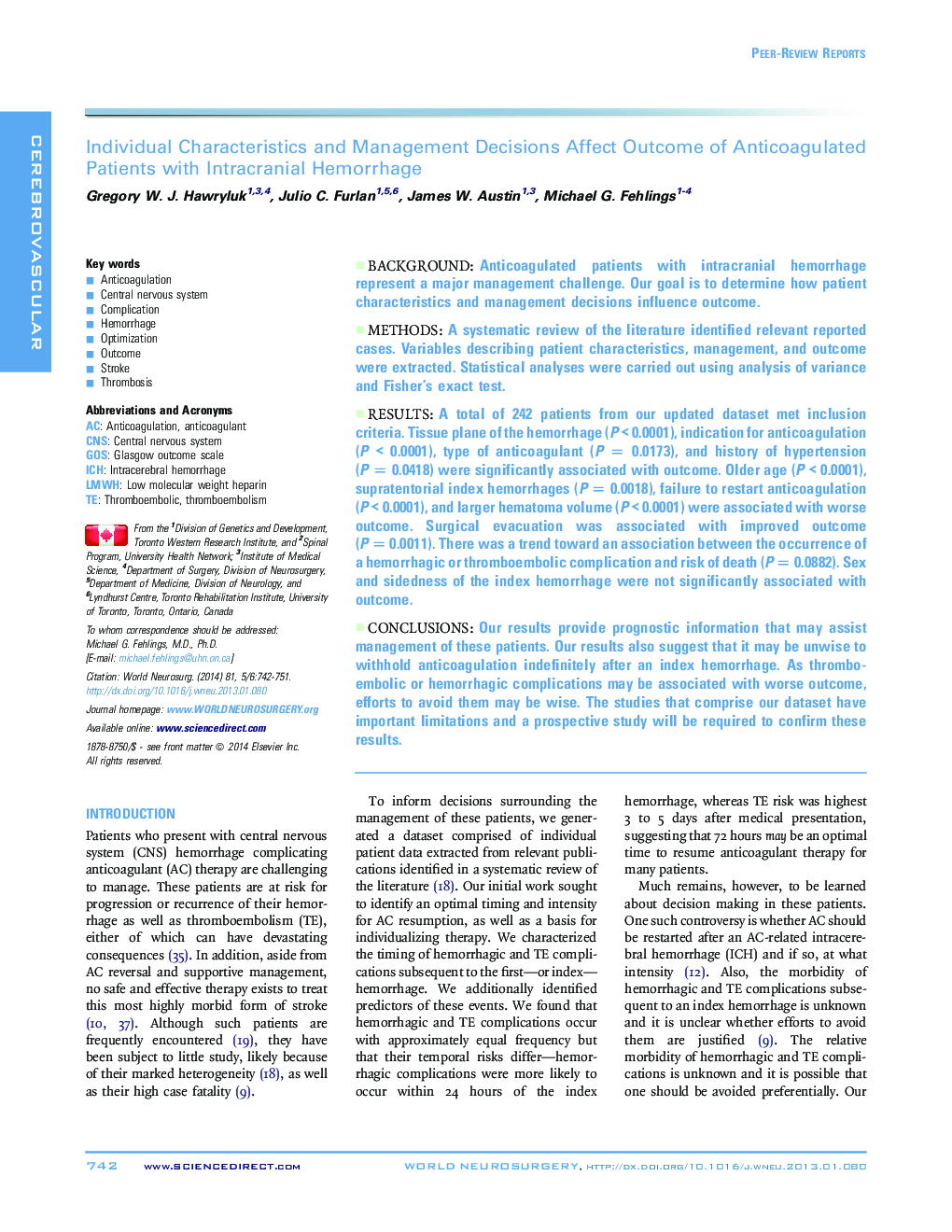| Article ID | Journal | Published Year | Pages | File Type |
|---|---|---|---|---|
| 6045813 | World Neurosurgery | 2014 | 10 Pages |
BackgroundAnticoagulated patients with intracranial hemorrhage represent a major management challenge. Our goal is to determine how patient characteristics and management decisions influence outcome.MethodsA systematic review of the literature identified relevant reported cases. Variables describing patient characteristics, management, and outcome were extracted. Statistical analyses were carried out using analysis of variance and Fisher's exact test.ResultsA total of 242 patients from our updated dataset met inclusion criteria. Tissue plane of the hemorrhage (P < 0.0001), indication for anticoagulation (P < 0.0001), type of anticoagulant (PÂ = 0.0173), and history of hypertension (PÂ =Â 0.0418) were significantly associated with outcome. Older age (P < 0.0001), supratentorial index hemorrhages (PÂ = 0.0018), failure to restart anticoagulation (P < 0.0001), and larger hematoma volume (P < 0.0001) were associated with worse outcome. Surgical evacuation was associated with improved outcome (PÂ =Â 0.0011). There was a trend toward an association between the occurrence of a hemorrhagic or thromboembolic complication and risk of death (PÂ = 0.0882). Sex and sidedness of the index hemorrhage were not significantly associated with outcome.ConclusionsOur results provide prognostic information that may assist management of these patients. Our results also suggest that it may be unwise to withhold anticoagulation indefinitely after an index hemorrhage. As thromboembolic or hemorrhagic complications may be associated with worse outcome, efforts to avoid them may be wise. The studies that comprise our dataset have important limitations and a prospective study will be required to confirm these results.
